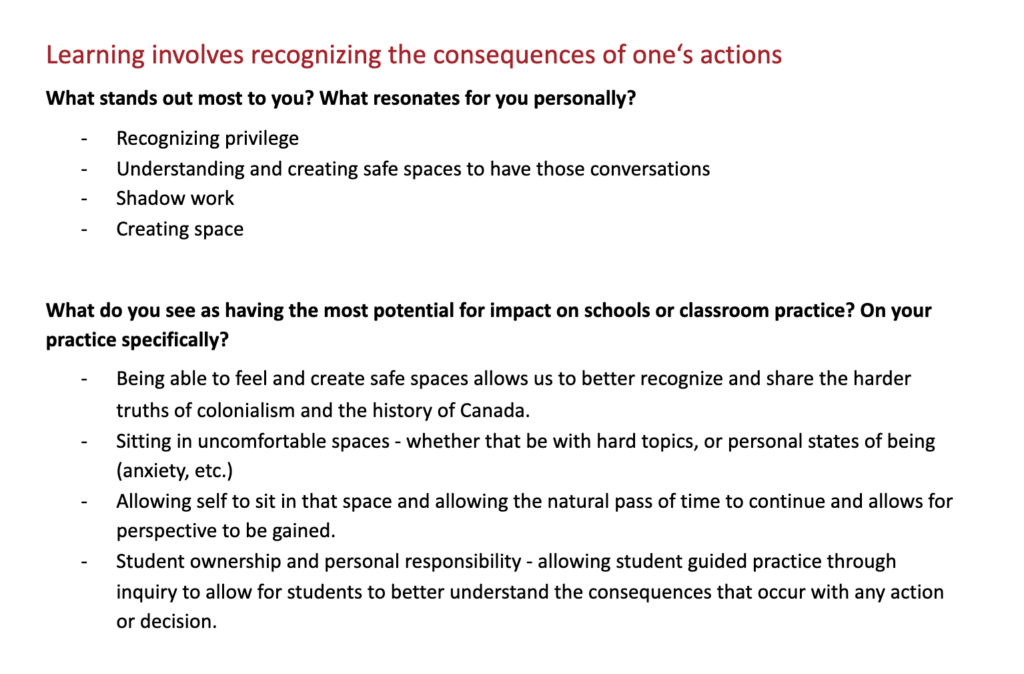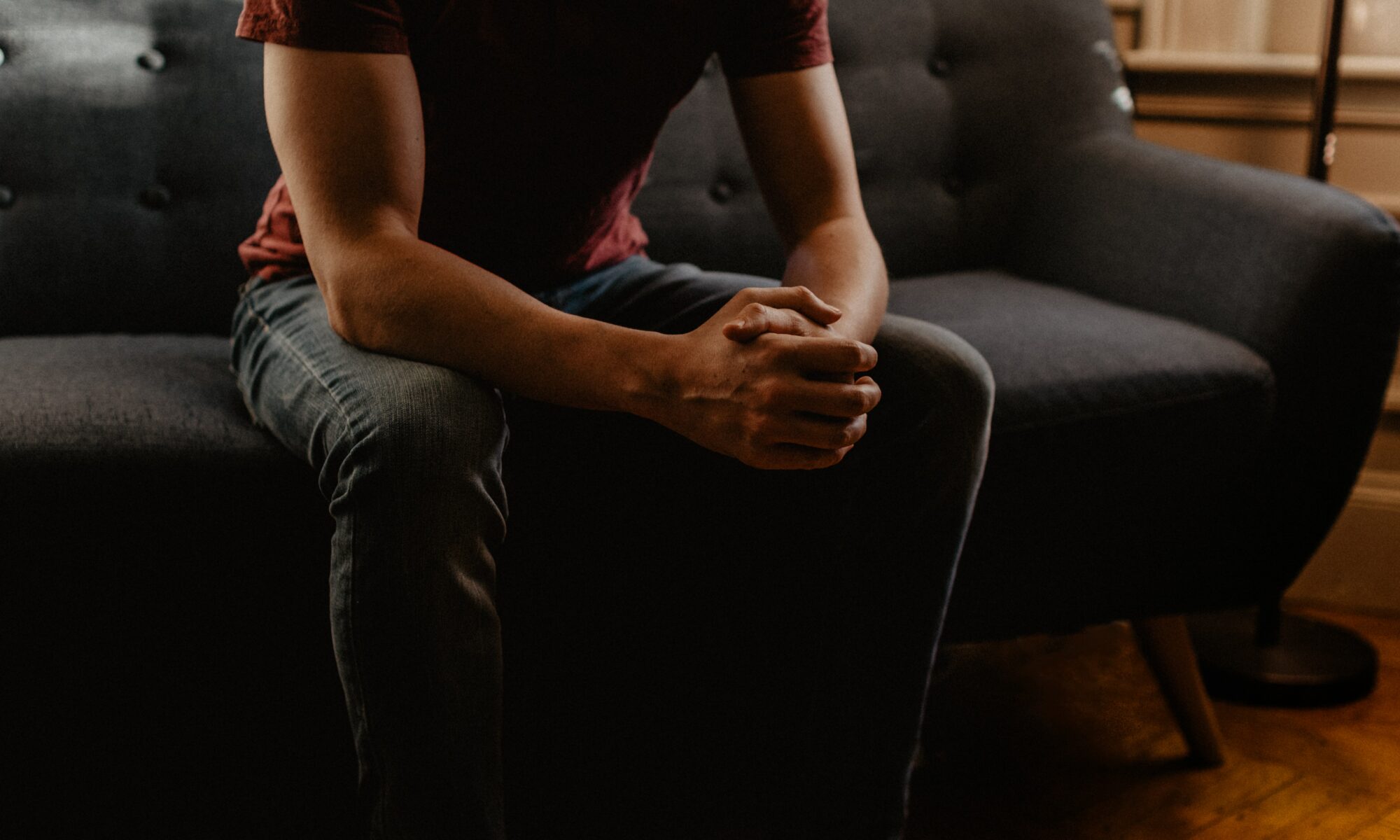The artifact that I chose to reflect goal #2 (Explain the purpose and value of First Peoples’ Principles of Learning) is from a lecture we had on July 6th within my EDCI 414 course. In this lecture, my breakout room was tasked with discussing the First peoples principle of:
“Learning involves recognizing the consequences of one’s actions.” – First Peoples Principles of Learning

Why does this artifact reflects my learning of the objective/goal:
During the discussion of this First Peoples Principle of learning, my group members and I were able to talk about what stood out to us about this principle and share our thoughts. My artifact for this goal is something that one of my classmates brought up during our discussion that resonated with me. My classmate talked about how sometimes we need to sit in uncomfortable spaces (such as hard to teach topics or personal states of being) and allow for the natural pass of time to go by to gain a better perspective. I felt this artifact of this discussion reflected the learning that my group had when discussing the First Peoples Principle of ‘Learning involves recognizing the consequences of one’s actions’. Part of what we discussed when analyzing this principle was that there is a need to recognize the effect that actions have. This can include recognizing colonialism in Canada’s past and present. These can be hard conversations to have with students or family, but necessary all the same. It was in this that our group was able to discuss the gain of perspective that can be had with sitting in these uncomfortable spaces.
What stood out to me in my learning process:
As a person who has struggled with anxiety since I was young, the notion of recognizing uncomfortable spaces (either conversations or states of being) as something that sometimes must be waited out was reassuring. Sometimes there are actions that can be taken to help relieve the discomfort, but other times it is necessary to wait out the discomfort.
How this learning may impact my teaching practice in the future:
I think this notion is really applicable to my future practice, as I want to be a part of helping educate students on the Indigenous history and perspectives of Canada. This can mean bringing students into these uncomfortable spaces, but this is necessary for both them and I to gain a better perspective and move towards creating reconciliation in the school system. I hope to continue practicing sitting through the discomfort of important and necessary topics such as colonization and continue to grow my own understanding.
Feature Image by Kelly Sikkema on Unsplash


